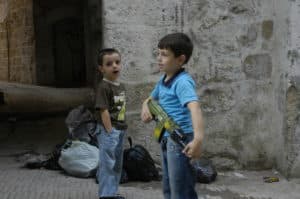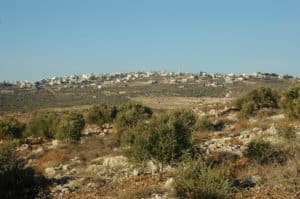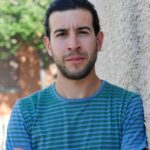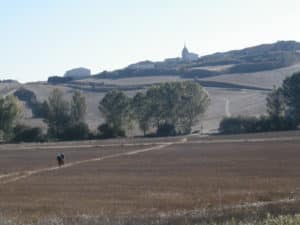By Stephen Bugno
They told me the gunfire only rings out at night. But this morning, after sunrise, I woke up to loud clashes across town in the Al Ein refugee camp and the upheaval continued until 11am. Then we checked the internet for the story: Ma’an News reported that one Israeli soldier and an 18-year-old Palestinian youth were killed. The Israelis blocked the entrances to the camp, so the Palestinian died before an ambulance could get inside.

The day before, on the bus ride from Ramallah, I was befriended by the man in the seat behind me. He pointed out all the Israeli settlements along the way.
“That’s my land,” he shouts. Mahmood is fuming, but somehow contains his anger.
The settlements are secure, self-contained towns, built of similar looking houses, usually located on the crest of the hills. Unlike Palestinian villages, settlements have priority access over water and electricity. The settlers also have their own newly-paved highways.
For an hour and a half we crawl over the decaying old roads in our aged, beat-up bus. We navigate around terraced, olive tree covered hills, passing Palestinian villages as well. They are older, employ more natural looking building materials and blend in with the rocky dry landscape of the Holy Land.
We get held up at each checkpoint. A single file line of cars, share taxis, and buses wait. These checkpoints and settlements are what infuriate the Palestinians most. But no one gets upset today, even as we sit sweating, the hot afternoon sun beating on us through the windows.
Finally we arrive at Hawara checkpoint, the last one before Nablus. One by one we walk through metal gates and show our passports, guns pointed directly at us. We are shuffled like cattle in a slaughterhouse. This is a twice daily routine here and can add up to two or three hours to an already long commute to work.

Nablus is located in the northern part of the West Bank and is contained inside of a zone called Area A. Here Palestinians have the privilege of administering and policing themselves. But because the checkpoints restrict access, it is basically an open-air prison.
Once in Nablus, I meet Hakim in a share taxi. A circus clown by trade, he had been performing in Jerusalem for the past few years. He tells me he’s now blacklisted and no longer allowed to leave Area A. His distant cousin has just been identified as a rebel by Israeli intelligence.
Nablus is a center of Palestinian resistance in the Occupied Territories and given the frequency of incursions by the Israeli Defense Force it is regarded by some as a dangerous place to live. But in reality it is most dangerous for insurgents or militia men or those unlucky enough to get caught in the crossfire in the refugee camps. A nighttime curfew helps to minimize casualties.
The nights in Nablus are quiet at first: a clear contrast from the typical bustle of Arab cities I witnessed in Egypt and Syria. No one here is out past midnight. I peer out from the third story window of our house. Nablus is built in a valley and stretches up onto both hills. From here I have a good vantage point to witness the stillness of night and the glow of the city under yellow street lamps.
Some nights there are incursions. When the gunfire starts, the dogs start barking, and the cocks start crowing.
Tonight I wake and rise from bed to watch the fireworks across the city: flashes startle my not-yet-adjusted eyes and tank blasts thunder my consciousness. After 15 minutes I can’t watch anymore and return to bed and lie awake.
My roommate, already here one week, has slept through the whole thing.

Stephen Bugno made his way from Istanbul to Cairo during a six-month overland trip in 2007, stopping for a month to volunteer in the West Bank. Since surviving these nights in Nablus, he has been living the life of a nomad: teaching abroad, traveling, and writing. His articles and essays have appeared in The San Francisco Chronicle, The Philadelphia Inquirer, and Transitions Abroad.




Wow! yes so its sounds like you are not in a very safe place right now. Please take care of yourself Stephen. In my past comment on your New Orleans entry I was wondering where could you possibly be right now. Please write when you can.